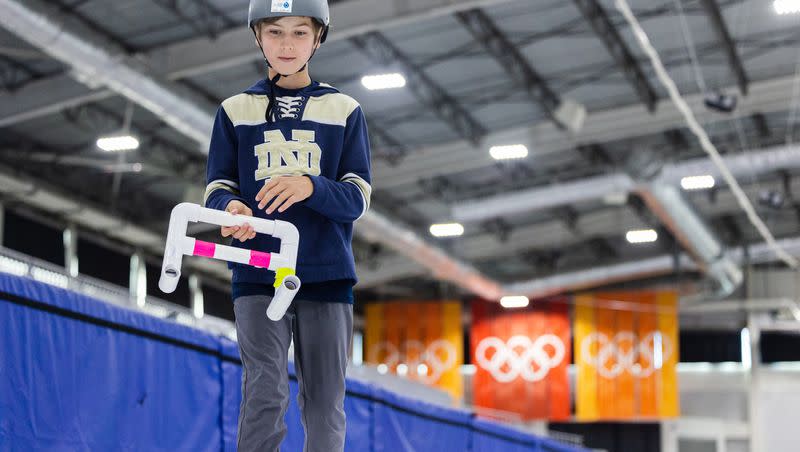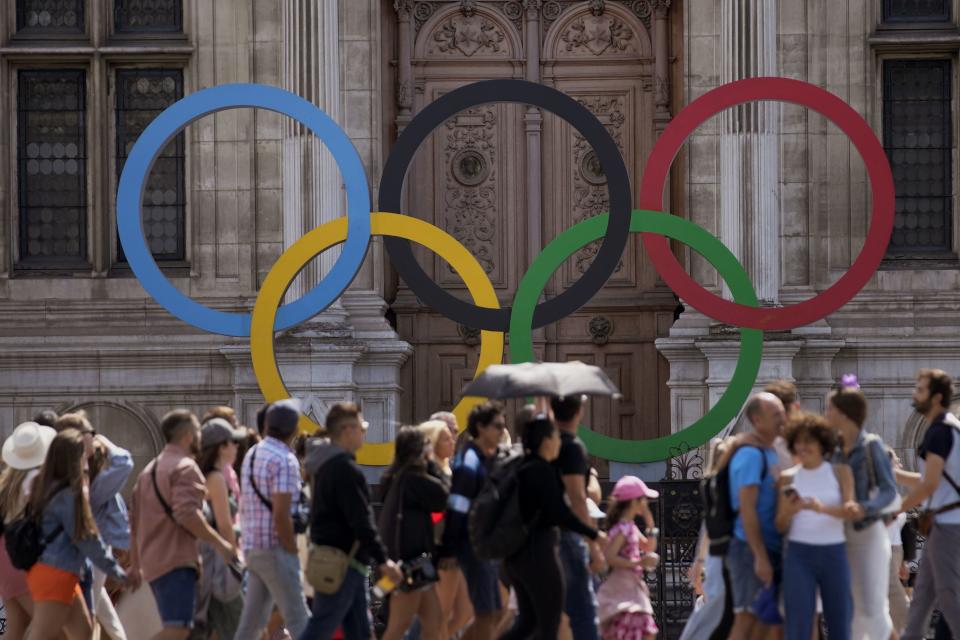Will the IOC’s decision on the 2030, 2034 Winter Games hosts be delayed again?

Wait, could there be another delay in the International Olympic Committee’s final vote on where the 2030 and likely the 2034 Winter Games are going?
Maybe.
At one point, the IOC had been expected to formally award at least the 2030 Winter Games this fall, at the regularly scheduled annual session of the full membership. But last December, IOC leaders announced a postponement to study climate change impacts.
They chose then not to advance the three cities in the race at that time, Salt Lake City; Sapporo, Japan; or Vancouver, Canada; to the next stage of the new bid process where host city contracts are negotiated, known as targeted dialogue.
New cities have since been encouraged to bid. An IOC official recently confirmed there are six currently in discussions to host a Winter Olympics, a list that includes entries from Sweden, Switzerland and, as of last week, France.
Related
It’s France’s late entry in the race to host in 2030 that’s raising the question of whether the IOC can hold the final vote on the Winter Games sites at next year’s annual session, being held in Paris, just before the 2024 Summer Games begin.
That’s because a rule in the IOC’s governing Olympic Charter seems to spell out a conflict. The rule states: “The election of the host of the Olympic Games takes place in a country having no candidature for the organization of the Olympic Games concerned.”
“It seems like a big problem,” said Robert Livingstone, the Toronto-based producer of GamesBids.com. He pointed out in a recent post that could push back a final IOC vote on the Winter Games host — or hosts, if 2034 is awarded at the same time — until mid-2025.

Although the new bid process does not lay out a timeline for host city selection, sites for both Summer and Winter Games have traditionally been selected by the IOC seven years in advance.
There is precedent for moving an IOC session to avoid breaking the Olympic Charter rule, Livingstone said, noting a 2019 session where Milan-Cortina was selected to host the 2026 Winter Game had been moved from Milan to Switzerland after the Italian bid was submitted.
But next year’s IOC session is different because it’s tied to the Paris Olympics, he said, leaving no choice but to add another, “extraordinary” session or wait until the 2025 session, set to be held in Athens, Greece.
Livingstone said there’s little chance a Winter Games pick could come at this year’s annual session, scheduled for October in Mumbai, India, since that’s also the next scheduled opportunity to advance bid cities to targeted dialogue.
Related
Just how soon will the IOC pick the next Winter Olympics hosts?
Salt Lake’s Winter Games bid ‘on the right track,’ U.S. Olympic official says
IOC officials have said it’s possible the IOC Executive Board could decide which city or cities advance to that next stage of the bid process, when the board meets just before the October session rather than waiting until their final quarterly meeting at the end of the year.
Even so, Livingstone said, there’s another rule in the charter that would prevent a vote at the October session. It spells out that the IOC Executive Board picks have to be submitted to the full membership “not later than one month” before the start of a session.
Of course, there is precedent for the IOC to hold “extraordinary” sessions, as happened in June when the full membership met virtually to withdraw recognition from the International Boxing Federation over governance, finance and ethical issues.
Why Utah bidders aren’t worried
Fraser Bullock, president and CEO of the Salt Lake City-Utah Committee for the Games that’s bidding to bring another Winter Games to the state, doesn’t expect to have to wait an extra year for a decision.
Salt Lake City is bidding for either the 2030 or 2034 Winter Games, but there’s a preference for the later date, to avoid competing for domestic sponsors with the 2028 Summer Games in Los Angeles.
“I doubt there will be a significant delay, if any,” Bullock told the Deseret News. “Awarding Games in mid-2024 only gives organizers 51⁄2 years to prepare for 2030. That is extremely tight and challenging.”
But the IOC may not speed up that timeline much, either, he suggested.
“I doubt any award would happen this year. In today’s flexible dialogue process, combined with virtual technology, the IOC can work through the nuances of the bid processes relative to the timing of awards,” Bullock said.
What’s key, the former chief operating officer of the 2002 Winter Games in Salt Lake City said, “is that the IOC can call a meeting anytime virtually, as they have already done. They can adapt to the various circumstances they encounter.”
Related
The IOC said it’s too soon to talk about the issue, since none of the Winter Games contenders, including France, are technically tied to bidding for a specific Olympics. That comes only if they are moved by IOC leaders to targeted dialogue.
“This is pure speculation,” an IOC spokesman said in a statement to the Deseret News after being asked about the impact of France’s bid on the timeline for choosing Winter Games hosts.
“At this point the IOC Executive Board has not opened a Targeted Dialogue with the French (national Olympic committee) and their project, or any other potential host for the Olympic Winter Games,” the statement said, “so as things stand the question is completely hypothetical.”
Avoiding ‘potential conflict of interest’
Still, the IOC has already taken action because of another issue caused by the French bid, with the Future Host Commission for the Olympic Winter Games that makes recommendations to IOC leaders.
Within days of the French bid being announced, the commission chairman, Romanian IOC member Octavian Morariu stepped down because he holds dual citizenship in France and Romania.
Morariu, replaced by Austrian IOC member Karl Stoss, had headed up the commission since it was created in 2019. An IOC news release said Morariu “took the decision to avoid any potential conflict of interest.”
The rules of conduct for the commission state that members “cannot be nationals of a country of an Interested Party,” meaning cities engaged in the initial phase of the bid process, or have any other conflicts of interest.
Bullock said Utah’s bid team “will miss Chairman Morariu. He is a fantastic leader and a great asset to the Olympic movement. But we understand the need to avoid conflicts of interest.”
Stoss, he said, “has been a key member of the winter Future Host Commission and knows us well.”

